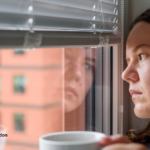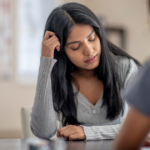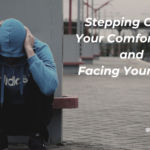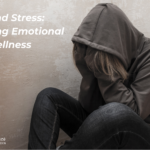Are you aware that in 2013 8.2 million people were struggling with an anxiety disorder in the UK? And woman struggle with Anxiety more than men. How do you recognise and overcome symptoms of Anxiety and look after your mental health?
What triggers your Anxiety? How can you conquer it? What are the things you can do to help yourself feel much better? Those answers, together with natural ways to regain your health from anxieties, are covered in this post to offer solutions and awareness.
Understanding your Anxiety & overcome symptoms of anxiety
You need to know and learn what causes your Anxiety, where your stress comes from through complicated relationships, workplace stress, financial issues and many more. Even if you recognise the symptoms of Anxiety and you know what causes it, you don’t know how to overcome it. You always worry, assume your issues are worse than they are, and you feel scared to confront your fears. So you will tend to live with Anxiety.
Remember that Anxiety is your body’s defence mechanism, triggered when the brain perceives you are in danger, and you will run away. Anxiety is the way for your mind to stay alert, making you think you are in danger, causing you to fight the threat or run away. Anxiety is not essentially a harmful feeling, but a constant feeling of anxiety can affect your long-term physical health.
Here are some of the symptoms of Anxiety and causes of Anxiety could be many things:
- Headache
- Sweating
- Muscle tension
- Irritability
- Difficulty focusing
- Fatigue and weariness
- Sleep disturbance
- Impatience
- Tremors
- Nervousness
Stress bucket
Imagine you have a bucket of water in front of you. When you have small tasks which you have to complete but have not, pressure can build up, becoming the primary source of Anxiety. Procrastination is often both a cause and a result of Anxiety. Nonetheless, you need to take note that not doing a job and having to think of it causes more stress. Take small steps to complete the essential tasks on your list.
Remember that the build-up of your tasks will raise your Anxiety. It will help if you do your best to make and stick to and update your to-do lists regularly to eliminate much of the tension caused by Anxiety.
There are no quick and easy ways to overcome symptoms of Anxiety
Drinking alcohol or smoking can offer you some relief from Anxiety as they are a distraction. However, it will only be temporary. Such substances do the opposite. It will make you feel worse than you did before you take them.
Further, alcohol is a depressant. You will feel sadder after you drink. Meanwhile, tobacco is a stimulant, making you feel more nervous. Both have negative impacts on your health, as these are addictive substances.
Relax with a calm walk in nature
A crucial step to overcoming your anxiety is to relax physically, even though it appears obvious. You need to take care of yourself, drink plenty of water, exercise even if it’s a 20-minute walk around the block and practice mindful breathing.
Did you know that using the right relaxation strategies will help you take control of your body and your mind? It will help lower your anxiety, sense of threat, and worry.
Looking after you and putting your needs first
Don’t forget to take care of yourself and remember that Anxiety can impact your physical and mental health. Practice mindfulness and deep breathing exercises daily. Watch something that makes you laugh, listen to music, pamper yourself (a massage), do activities you love, and take a relaxing break regularly. What better way to fight Anxiety and feel relaxed and calm?
What are your stories on how you have overcome symptoms of Anxiety? Can you talk to your family members or friends? Share your insights with us.
If you want to learn more about stopping anxiety attacks read here and get in touch here to connect with me.










